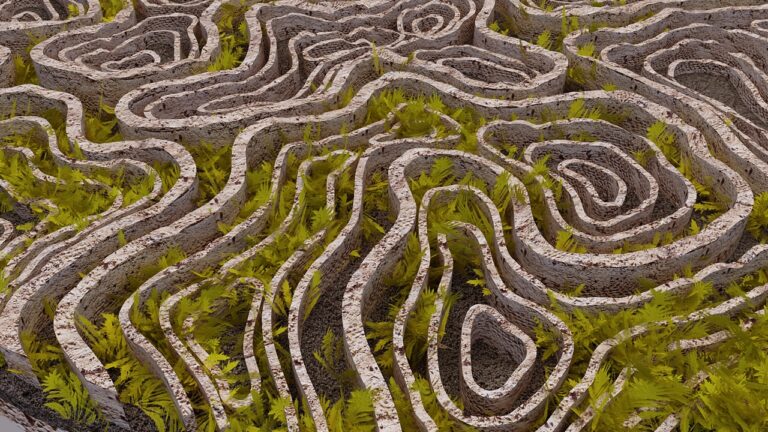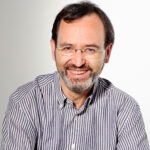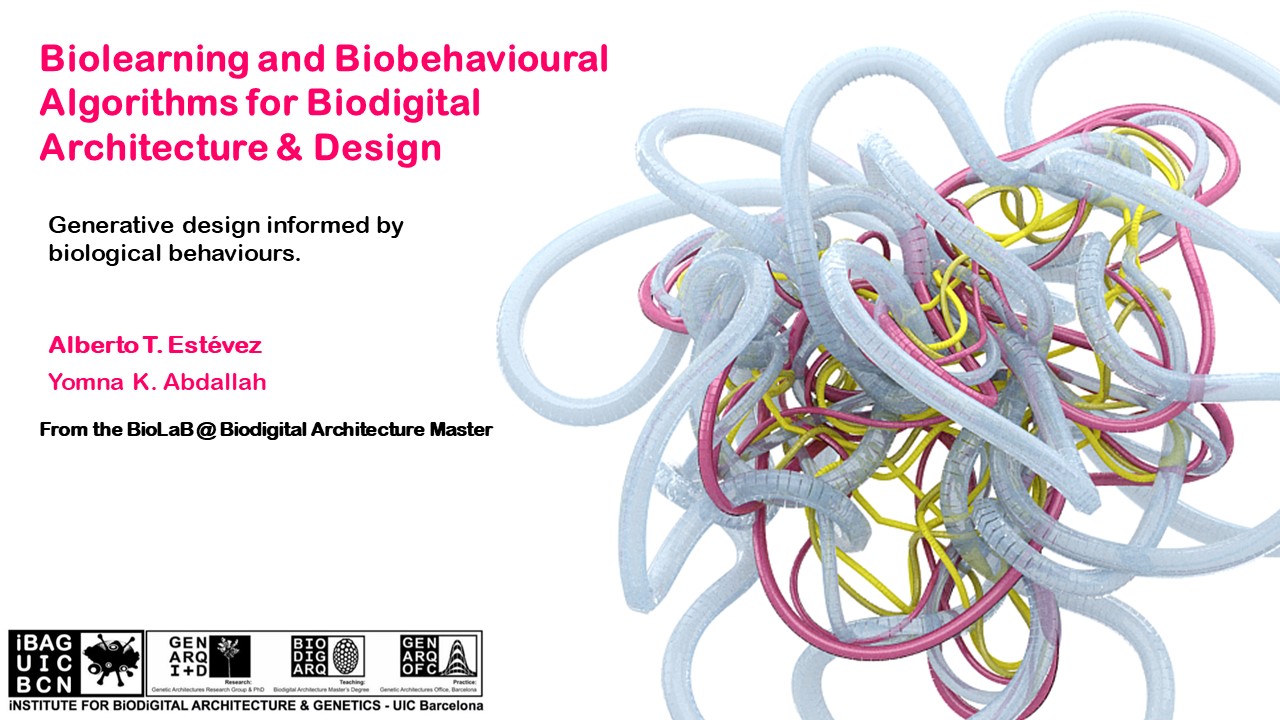
Description:
Required Skills: Rhinoceros + Grasshopper 3D (Basic Level minimum)
Required Software: Rhinoceros + Grasshopper 3D
Required Hardware: Personal Computer with WIFI connection
Maximum number of participating students: 100
Main Theme: Generative design informed by biological behaviours. This workshop presents two main pivots:
- Biolearning Methodology: on the know-how of bio design categories including (formal complexity informed by biological data, bio active agents integration in architectural design through biosystems and biomaterials, how to achieve maximum customization and coupling between bio generated forms and their proposed bioactive functions to achieve sustainability through generative algorithms and digital fabrication).
- Bio Behavioural Generative Algorithms: presenting the analytics of biological behaviours of the integrated bioactive agents (bacteria, Fungi, and algae) through mathematical biology; introducing a group of bio behavioural algorithms as (Cellular Automata and its deterministic and stochastic subclasses (Random Walk, Conway Game of Life) and Differential Growth Algorithms. These Algorithms represents a group of bio behaviours as: chemotaxis, bio catalysis and morphogenesis in response to environmental effectors.
Learning Objectives:
- each participant will be able to identify a bioactive agent eligibility for integration in architectural design and built environment through analysing their environmental and sustainability value and their exploited bio behaviour to be used for achieving sustainability (bio catalysis, bioremediation, bioluminescence, etc).
- each participant will be able to algorithmically analysing the targeted bio behaviour of the selected bioactive agent (bacteria, fungi, algae) and utilize it in architectural design either in a biosystem (bioreactor), or biomaterial or hybrid.
- each participant will be capable of representing the full operational and technical aspects of their proposed biosystem and biomaterials.
Outcomes:
- biolearning methodology development.
- bioactive agent integration in biosystem or biomaterial design.
- biobehavioural generated design forms.
- operation and technicality of the proposed biosystem or biomaterial.
Schedule:
timezone: (GMT +1:00) Brussels, Copenhagen, Madrid, Paris| Start time | End time | Description |
|---|---|---|
| 2022-06-27 - 16:00 | 2022-06-27 - 19:00 | Biolearning Methodology |
| 2022-06-28 - 16:00 | 2022-06-28 - 19:00 | Introduction to Biotechnology in Design Practices |
| 2022-06-29 - 16:00 | 2022-06-29 - 19:59 | BioBehavioural Algorithms |
| 2022-06-30 - 16:00 | 2022-06-30 - 19:00 | Design Customization for 3D printing |
Instructors:
 |
AlbertoTEstevez | Alberto T. Estévez, architect, with a professional office of architecture and design in Barcelona since 1983. Chairman-professor, founder and first director of ESARQ, the School of Architecture of UIC Barcelona (Universitat Internacional de Catalunya). Founder and first director of UIC Architecture PhD and Masters. Director of iBAG-UIC Barcelona (Institute for BioDigital Architecture and Genetics), that includes the Genetic Architectures Research Group and Office, and the Master’s Degree in Biodigital Architecture. He has written more than 200 publications, participated in a large number of exhibitions, and invited lectures around the world, presenting his ideas, projects and works. www.albertoestevez.com / www.geneticarchitectures.weebly.com / www.biodigitalarchitecture.com |
 |
Yomna K. Abdallah | Yomna K. Abdallah, architect, assistant professor. ESARQ, the School of Architecture of UIC Barcelona. iBAG-UIC Barcelona (Institute for BioDigital Architecture & Genetics), which includes the Genetic Architectures Research Group & Office, and the Master’s Degree in Biodigital Architecture. Member of Bioengineering Institute of Technology at UIC. led multidisciplinary research projects in numerous universities. While receiving multiple grants, funds, and fellowships, and having numerous published papers in indexed journals and editorials. |
Disclaimer:
All workshops will accept 100 applications MAX.

